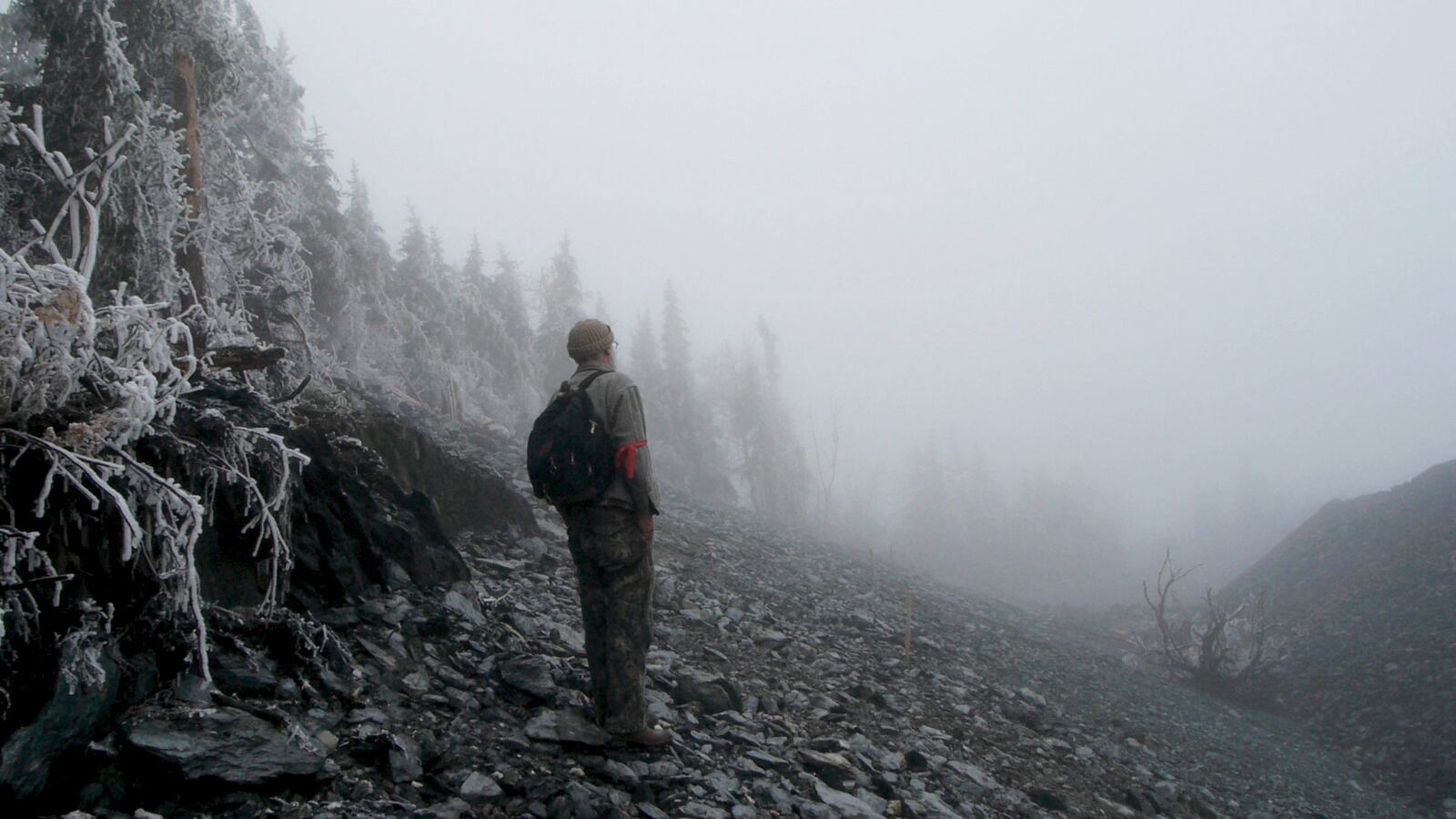Legendary environmentalist Bill McKibben gets hit with a dubious barrage in Michael Moore’s new climate change documentary Planet of the Humans, which portrays McKibben, a forefather of the movement to avert climate catastrophe, as a cynical capitalist allied with the exact sort of rapacious, destructive companies he’s long opposed.
At one point, when the filmmakers appear about ready to spike the football, a Skype interviewer asks McKibben, “Who are your funders?”
The film shows only a portion of his response, and doesn't answer that question except with innuendo and misleading claims. But McKibben—incensed though he may be—is game, even if the responses he said he wrote to the producers (after appearing briefly onscreen) aren’t included in the doc itself.
“I’ve never been paid a penny by anyone in the [environmental] or corporate world,” he told The Daily Beast. “350 has never taken corporate funding of any kind,” he added, referring to his nonprofit advocacy group, which has, of course, taken money from environmental foundations. But that is a very different sort of entity, a distinction the film glosses over.
In another distortion, McKibben is shown endorsing the burning of wood chips as fuel—a project he has since condemned. In another scene, he’s tied to climate bad guys like McDonald’s because of 350.org’s link with Green Century Funds—a resource for well-heeled environmentalists who want to get actual oil companies like Exxon out of their investment portfolios (and are less concerned about, say, fast food).
“I’ve never endorsed any fund or anything like it,” McKibben told The Daily Beast.
“I have been in roughly 10 million panel discussions,” he added, referring to a scene in which he shared a stage with an investor tied to Goldman Sachs.
Planet of the Humans—directed by frequent Moore collaborator Jeff Gibbs, and released on Moore’s YouTube channel—is a wannabe bombshell documentary in that it purports to call out ostensibly corrupt behavior by top players in the world of climate advocacy. But as the McKibben focus suggests, the bomb in question has not been dropped for any compelling reason, and the response the film is receiving from the environmental movement amounts to a mix of shock and dismay.
The doc’s relationship with the truth is so weak that Films for Action, an online library of progressive filmmaking, temporarily pulled it, only to restore it despite concerns about rampant “misinformation.”
Facts notwithstanding, McKibben and Al Gore serve as high-profile examples of an ostensible match made in hell between the environmental movement and capitalism. To the delight of right-wing publications like Breitbart, the movie goes after flaws in electric vehicles, windmills, and solar panels, and takes pains to point out who profits from those renewable energy sources. Worse, supposedly environmentally-friendly events advertised as powered by renewables are repeatedly shown to be a deception, fueled in actuality by grid power.
Actual scientists and people with expertise in this space are an afterthought.
“A lot of the stats are 10 years old,” said Zeke Hausfather, director of climate and energy at The Breakthrough Institute, an environmentalist Think Tank, referring to some of the film’s more damning claims about renewable energy. “We’re shown 8 percent-efficient solar panels, for instance,” he said. Some of today’s consumer grade solar panels weigh in at about 22.8 percent efficiency, according to a recent buyers guide.
No matter: The film argues that renewables are, in short, a lost cause. The world is overpopulated, the thinking goes, and only a new way of life for everyone will offer any hope of healing the world.
That’s hardly the mainstream message on climate change, but it is the story told by climate doomers. These folks amount to a subset of climate change activists who have become disillusioned with existing movements for change, and seem to be waiting for societal collapse instead. Doomers are often linked to Jem Bendell, professor of sustainability leadership at the University of Cumbria in the U.K., who has endorsed the documentary.
That exceedingly despairing—and factually thin—approach is costing Moore fans.
“I’ve definitely enjoyed Moore's past movies—Bowling for Columbine, Fahrenheit 9/11. But as a climate scientist I’m also aware of how often folks end up misrepresenting a new field that they are not expert in,” Hausfather said. “Moore and Gibbs may mean well, but they should have really spoken to some energy modelers and climate scientists before going forward with this.”
Gibbs, at least, refused to back away from what many advocates described as something akin to a grenade being thrown in the tent that is the movement to mitigate climate peril.
“Sorry if people are offended. I stand by everything in the film. We stand by everything in the film,” he told The Daily Beast in an interview.
“I think we need to have a new environmental movement,” he added.
Representatives for Moore did not respond to requests for comment for this story. But he acknowledged criticism to Hill TV on Tuesday, telling critics on the left they needed to hear him: “It’s only your friends who can tell you when you’re messing up, when you’re doing wrong.”
It’s not that simple.
In fact, there are three massive problems with the film and its claims that all the people best known for fighting global warming are in bed with Big Money, as helpfully tallied in a viral piece by climate journalist Emily Atkin:
<p>Does Michael Moore’s new bombshell climate change documentary, <em>Planet of the Humans</em>, include equally bombshell evidence to support these controversial claims? Does the film’s director Jeff Gibbs give the environmentalists he attacks a fair chance to respond? And on the extremely racially fraught issue of limiting population growth, do Moore and Gibbs interview any non-white experts to support their point?</p>
(The answer to each question, she points out, is no.)
“I wish there were more people of color in the film,” Gibbs told The Daily Beast, by way of concession. He argued that the film presents the experts who were available while he was filming. “You see our environmental leaders had been mostly white, and you see solar experts in the solar festival who are white.”
He added that greater diversity was “where the environmental movement needs to go.”
Activists of color have played a large—perhaps even predominant—part in recent climate change media narratives. But Planet of the Humans largely comprises footage filmed several years ago, as science writer Ketan Joshi pointed out.
McKibben, meanwhile, is more or less the villain here despite having been one of the first American climate change activists. He wrote the 1988 New York Review of Books article “Is the World Getting Hotter?” that set the field of climate change journalism in motion almost single-handedly. (The film is so dedicated to attacking McKibben that he receives even more screen time than Gore.)
Perhaps the most glaring problem is a fixation on overpopulation. Anything that smacks of population control is a red line for many climate activists and experts: Such thinking is generally thought of as a gift to far-right extremists.
“It is outright dangerous in the year 2020 to intervene in the climate emergency with a message of eco-fascism,” meteorologist and eco-socialist activist Eric Holthaus told The Daily Beast.
On that point, Gibbs pleaded ignorance.
“It was never my attempt to introduce the idea that we should go into some kind of population reduction program at all,” he said. Instead, he argued, he was trying to make the viewer “aware that the whole human enterprise has exceeded its limits.”
Aaron Thierry, a climate scientist and member of Scientists for Extinction Rebellion, a far-left climate activist group, took issue with that. He told The Daily Beast Gibbs was right to say, “our way of life will need to dramatically change.” But rather than point to the issue of overpopulation, Thierry offered “degrowth circular economics,” and a turn toward “communal living” as promising alternatives.
“The film does not explore these possibilities or offer any practical solutions,” though, Thierry said, adding that people should ignore what amounts to a “defeatist and miserable message.”
It’s easy to see why the economic left might be inclined to attack the climate movement for being enamored of the profit motive. But as author and anti-capitalist activist Naomi Klein tweeted, “There are important critiques of an environmentalism that refuses to reckon with unlimited consumption [and] growth…. this film ain't it.”
The film is decidedly unconcerned with attacking Big Green by way of salient and up-to-date analysis. Instead, it settles for a damaging montage of factoids, superimposing images of activists next to corporate evildoers, and generally making lame, corporate let’s-go-green initiatives look like nefarious get-rich-quick schemes.
“What we’re trying to get across is the larger point that it doesn’t even matter if they’re 100 percent efficient,” Gibbs said of renewables. “The story is that they're still part of a giant industrial civilization that consumes resources.”
According to Gibbs, who has worked on many Moore movies, “The highest and best purpose of a film is to create a lot of discussion.”
“I just have never expected it to blow up as quickly,” he added. “But here we are, having a discussion.”
That may be. But the problem climate advocates have with the film is fairly simple: It’s a Michael Moore movie, not a work of journalism.







